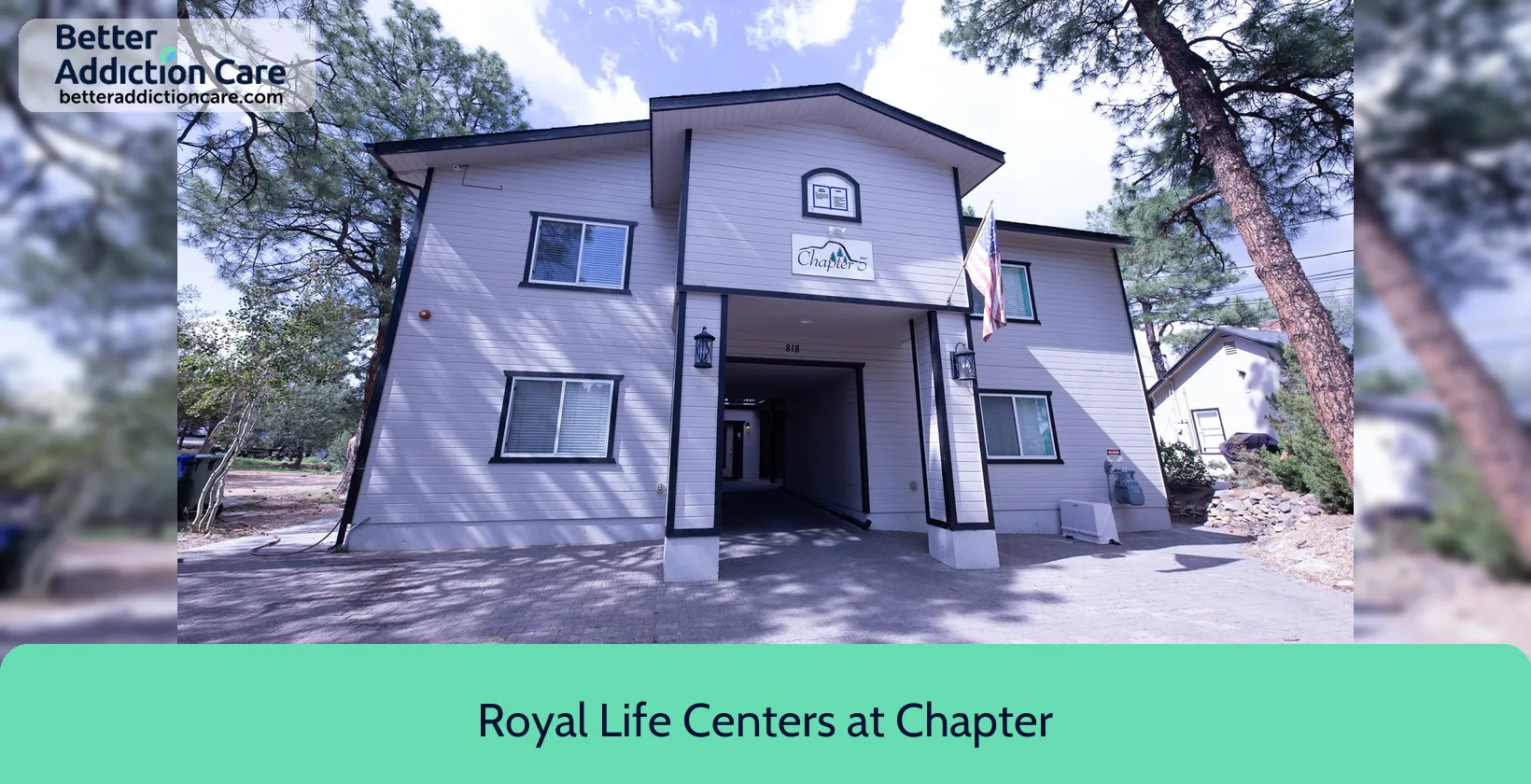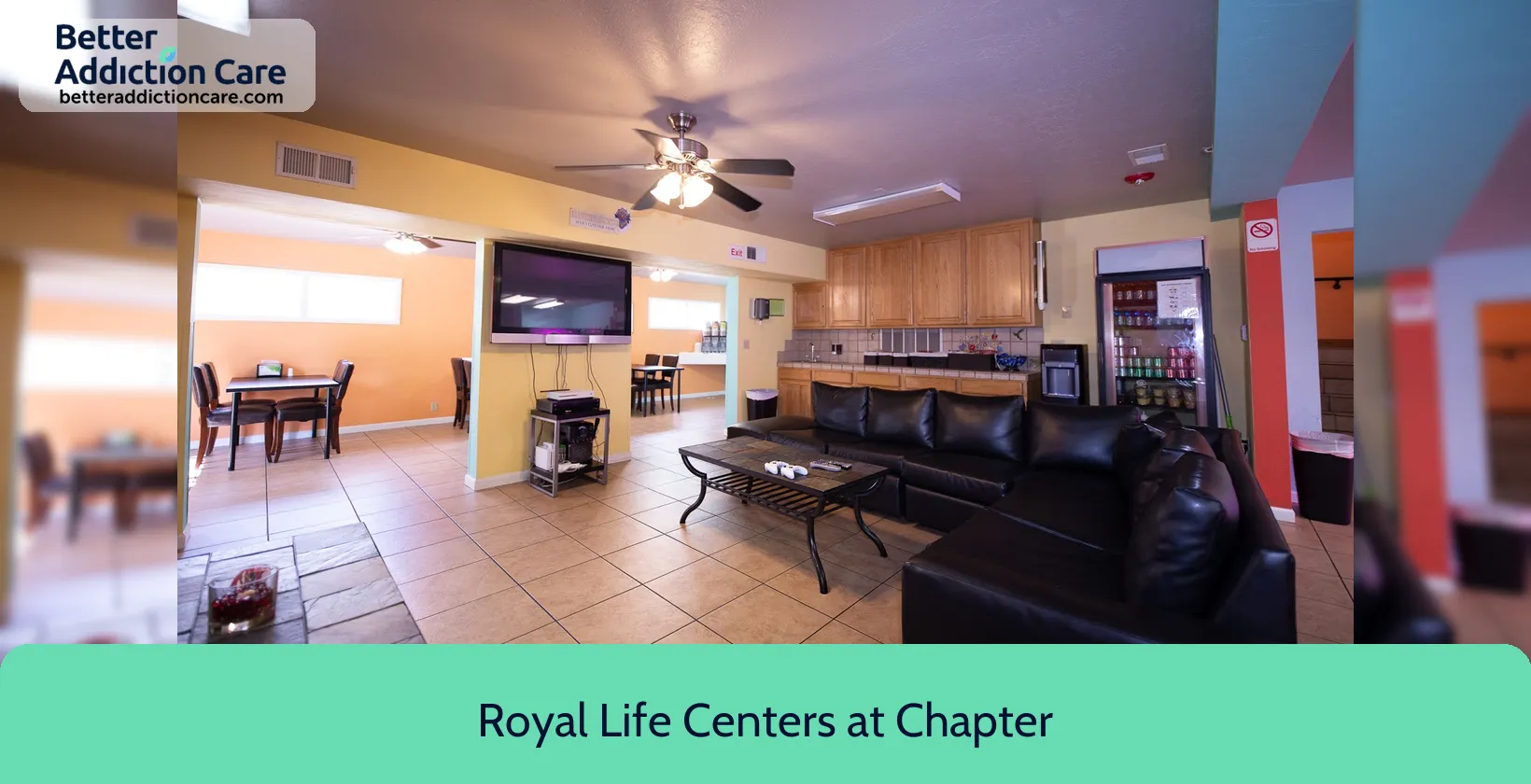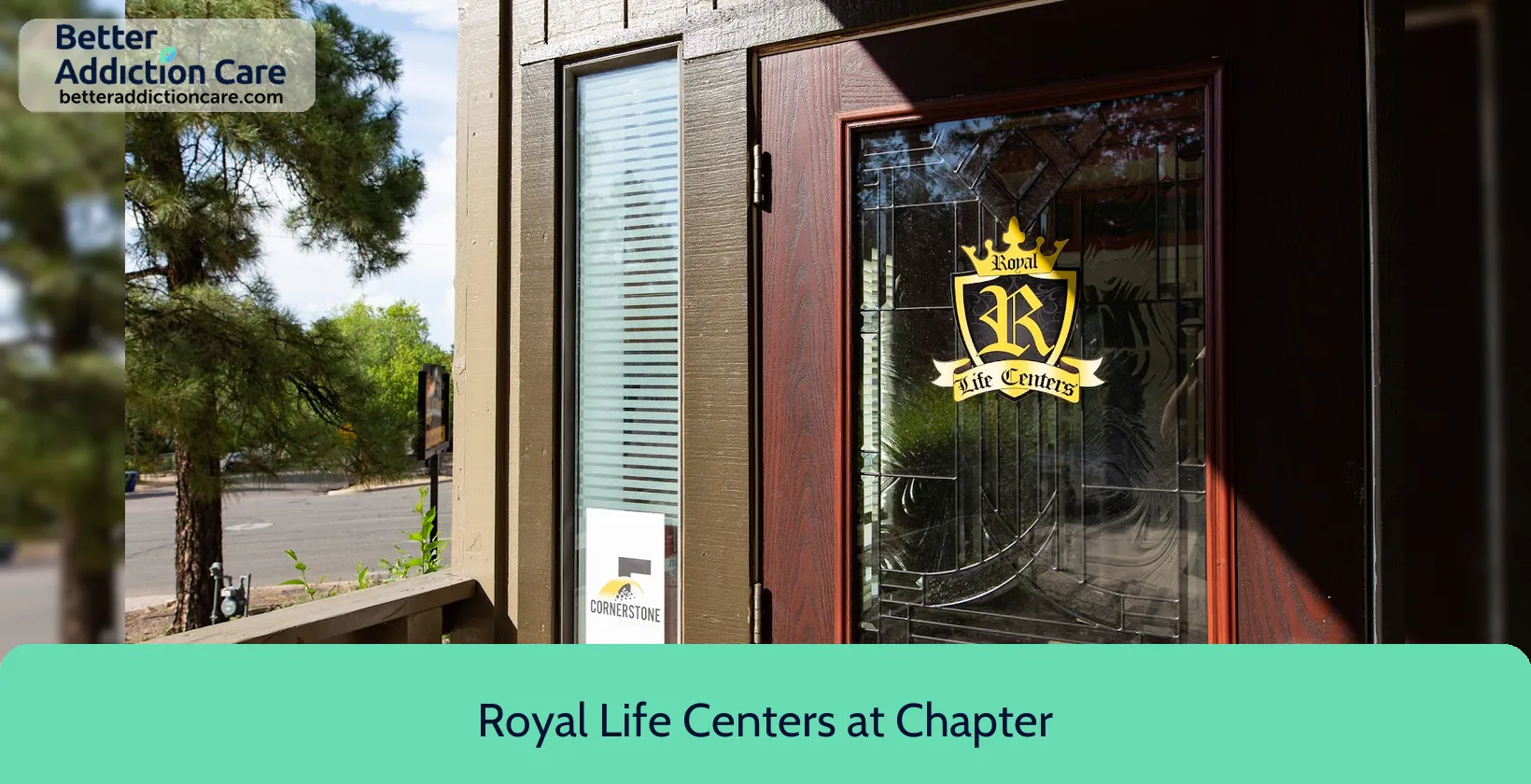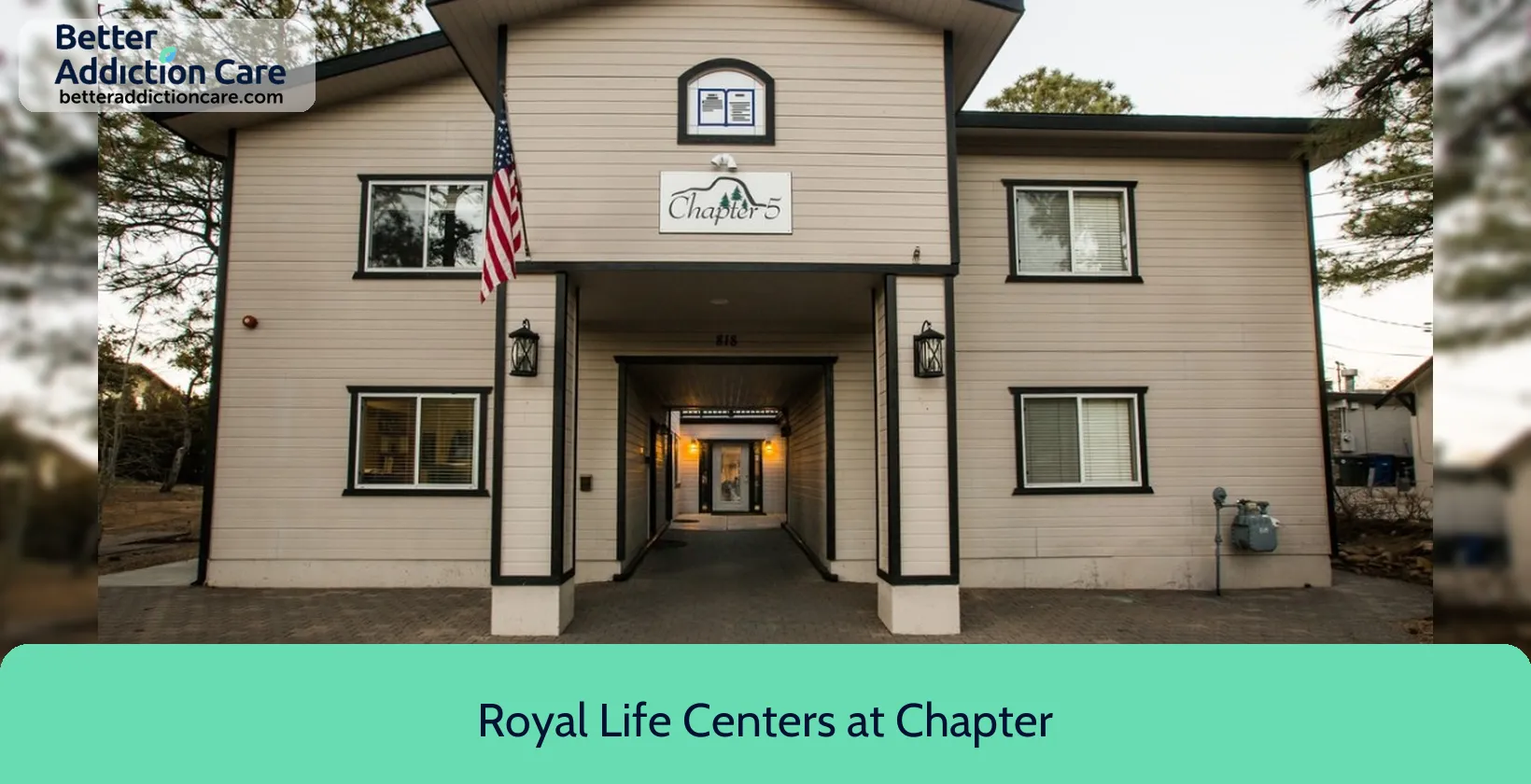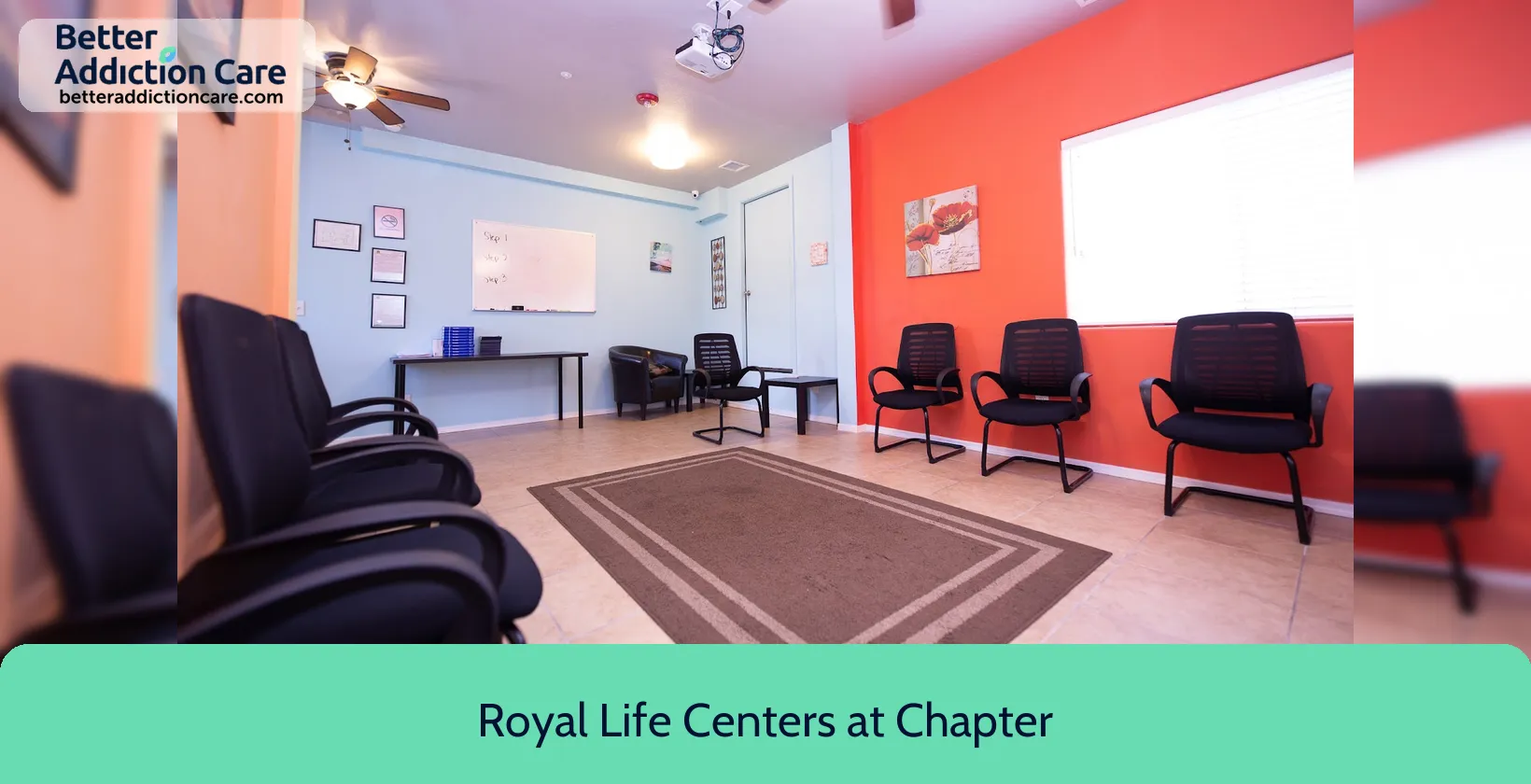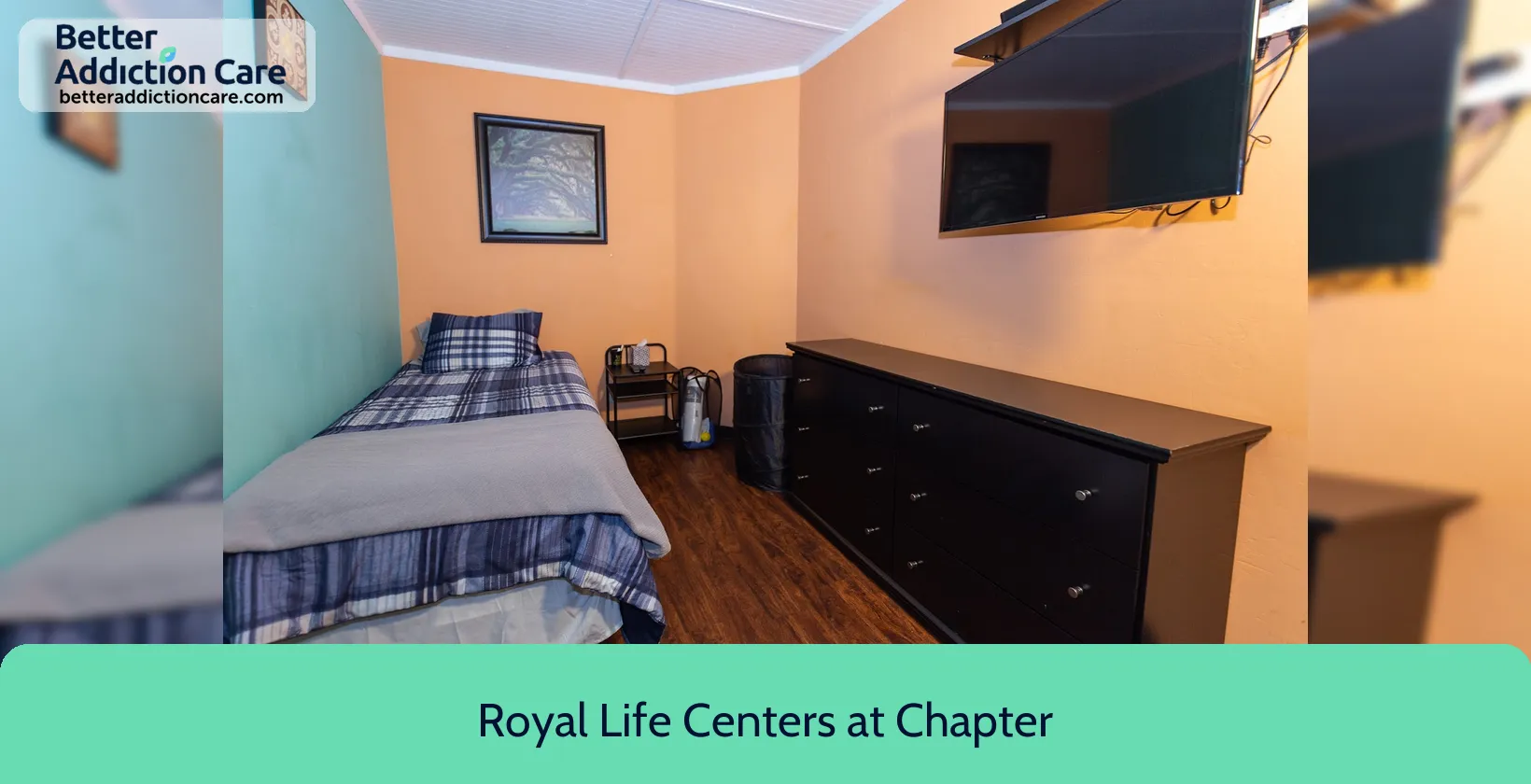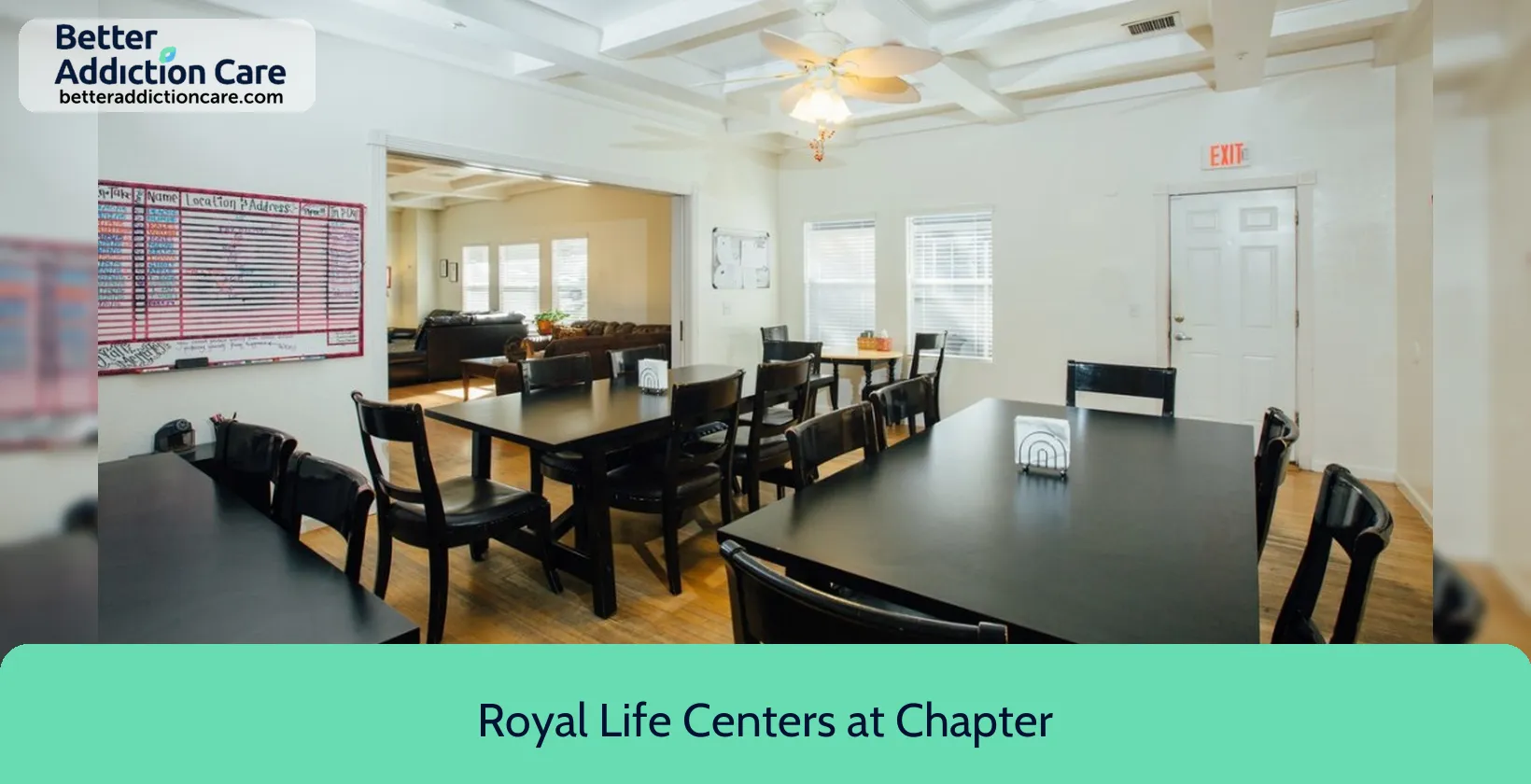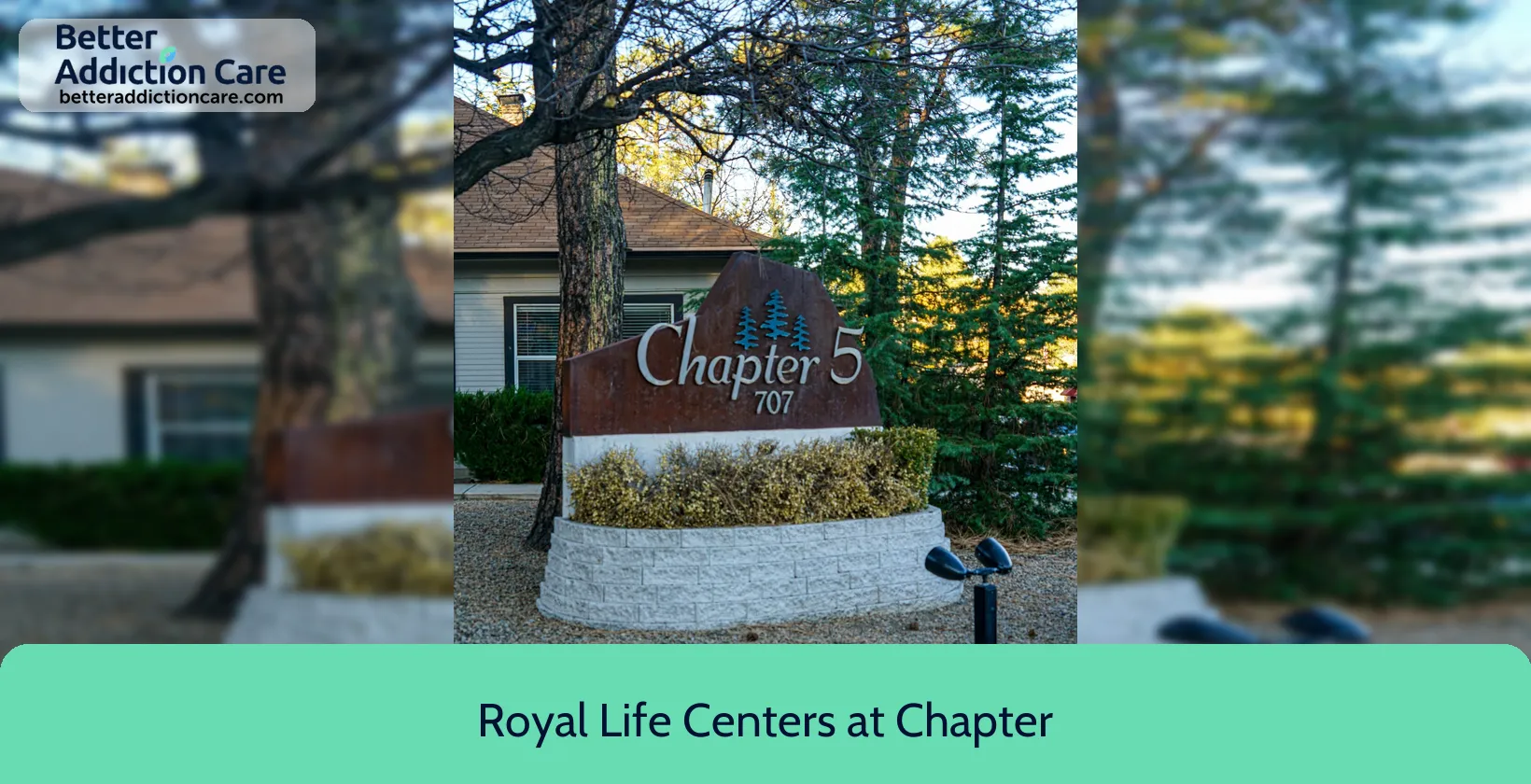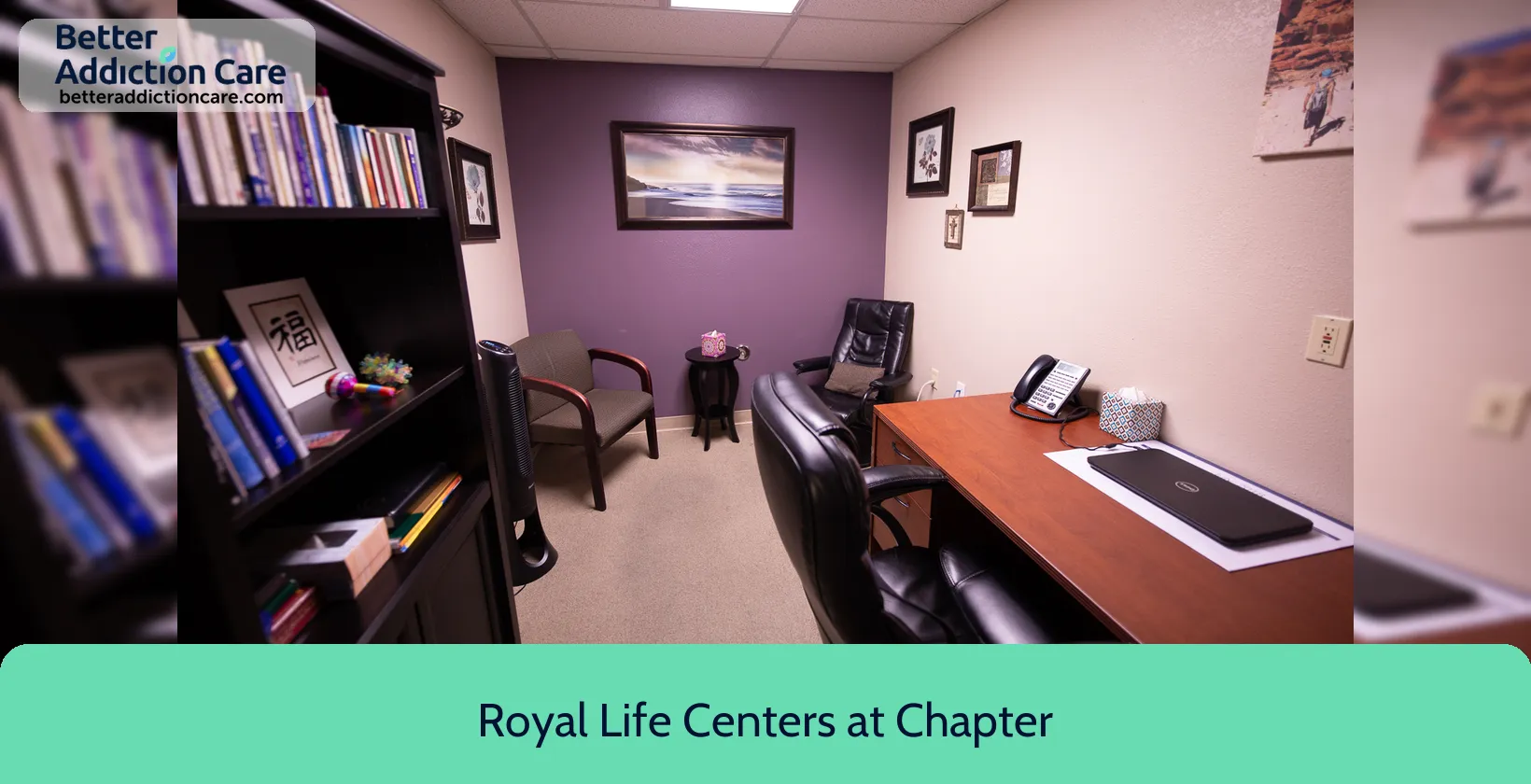Royal Life Centers at Chapter 5
Overview
Royal Life Centers at Chapter 5, located in Prescott, Arizona, offers specialized addiction treatment for men suffering from substance use problems. This men-only institution provides a safe and supportive atmosphere in which individuals can focus on their recovery. The center meets the specific needs of male clientele, instilling a strong sense of brotherhood and community. The institution provides comprehensive care through a variety of programs designed to accommodate clients at every stage of their recovery, including medical detox, inpatient treatment, partial hospitalization (PHP), intensive outpatient (IOP), outpatient care, and continuous aftercare services.
Royal Life Centers provides evidence-based therapies such as Cognitive Behavioral Therapy (CBT), Dialectical Behavior Therapy (DBT), and Acceptance and Commitment Therapy (ACT). Clients also benefit from individual and group counseling, relapse prevention techniques, and holistic therapies such as yoga and mindfulness meditation. The facility's tailored approach tailors treatment plans to each guest's particular needs, resulting in focused and effective care. Royal Life Centers is accredited by The Joint Commission and CARF, ensuring the greatest levels of safety, compliance, and quality in addiction treatment services.
Royal Life Centers at Chapter 5 at a Glance
Payment Options
- Cash or self-payment
- Medicaid
- Medicare
- Private health insurance
- Federal military insurance (e.g., TRICARE)
Assessments
- Screening for tobacco use
- Comprehensive mental health assessment
- Comprehensive substance use assessment
- Outreach to persons in the community
- Screening for mental disorders
Age Groups
- Seniors or older adults
- Young adults
- Adults
- Seniors
Ancillary Services
- Case management service
- Integrated primary care services
- Suicide prevention services
- Early intervention for HIV
- Mental health services
Highlights About Royal Life Centers at Chapter 5
7.16/10
With an overall rating of 7.16/10, this facility has following balanced range of services. Alcohol Rehabilitation: 8.00/10, Drug Rehab and Detox: 6.92/10, Insurance and Payments: 6.00/10, Treatment Options: 7.70/10.-
Alcohol Rehabilitation 8.00
-
Treatment Options 7.70
-
Drug Rehab and Detox 6.92
-
Insurance and Payments 6.00
Accreditations
State mental health department:
State mental health department accreditation refers to the process of evaluating and certifying the quality and standards of a state's mental health department, ensuring that it provides high-quality services and meets specific criteria for mental health care. The accreditation process is performed by a third-party organization and helps to improve the overall care and treatment of individuals with mental health conditions.
State department of health:

Government agencies issue State Licenses, granting permission to rehabilitation organizations to conduct their business operations lawfully within specific geographic regions. Generally, the particular rehabilitation programs offered by a facility and its physical location dictate the necessary licenses needed for legal operation.
The Joint Commission:

The Joint Commission's addiction and behavioral health accreditation signifies a facility's commitment to high-quality care. It involves rigorous evaluations and assessments of clinical practices, ensuring effective, evidence-based treatment. Accreditation showcases a dedication to continuous improvement and patient safety, instilling trust among patients, families, and healthcare professionals. It's a mark of excellence in addiction and behavioral health care.
Treatment At Royal Life Centers at Chapter 5
Treatment Conditions
- Alcoholism
- Substance use treatment
Care Levels
- Hospital inpatient treatment
- Short-term residential
- Aftercare
- Detoxification
Treatment Modalities
- Cognitive behavioral therapy
- Telemedicine/telehealth therapy
- Substance use disorder counseling
- Trauma-related counseling
- Smoking/vaping/tobacco cessation counseling
Ancillary Services
Languages
- Sign language services for the deaf and hard of hearing
- English
Additional Services
- Pharmacotherapies administered during treatment
- Housing services
- Breathalyzer or blood alcohol testing
Special Programs
- Clients with co-occurring mental and substance use disorders
- Veterans
- Active duty military
- Members of military families
- Criminal justice (other than DUI/DWI)/Forensic clients
Get Help Now
Common Questions About Royal Life Centers at Chapter 5
Contact Information
Other Facilities in Prescott

7.65

6.53

6.56

7.57

7.71
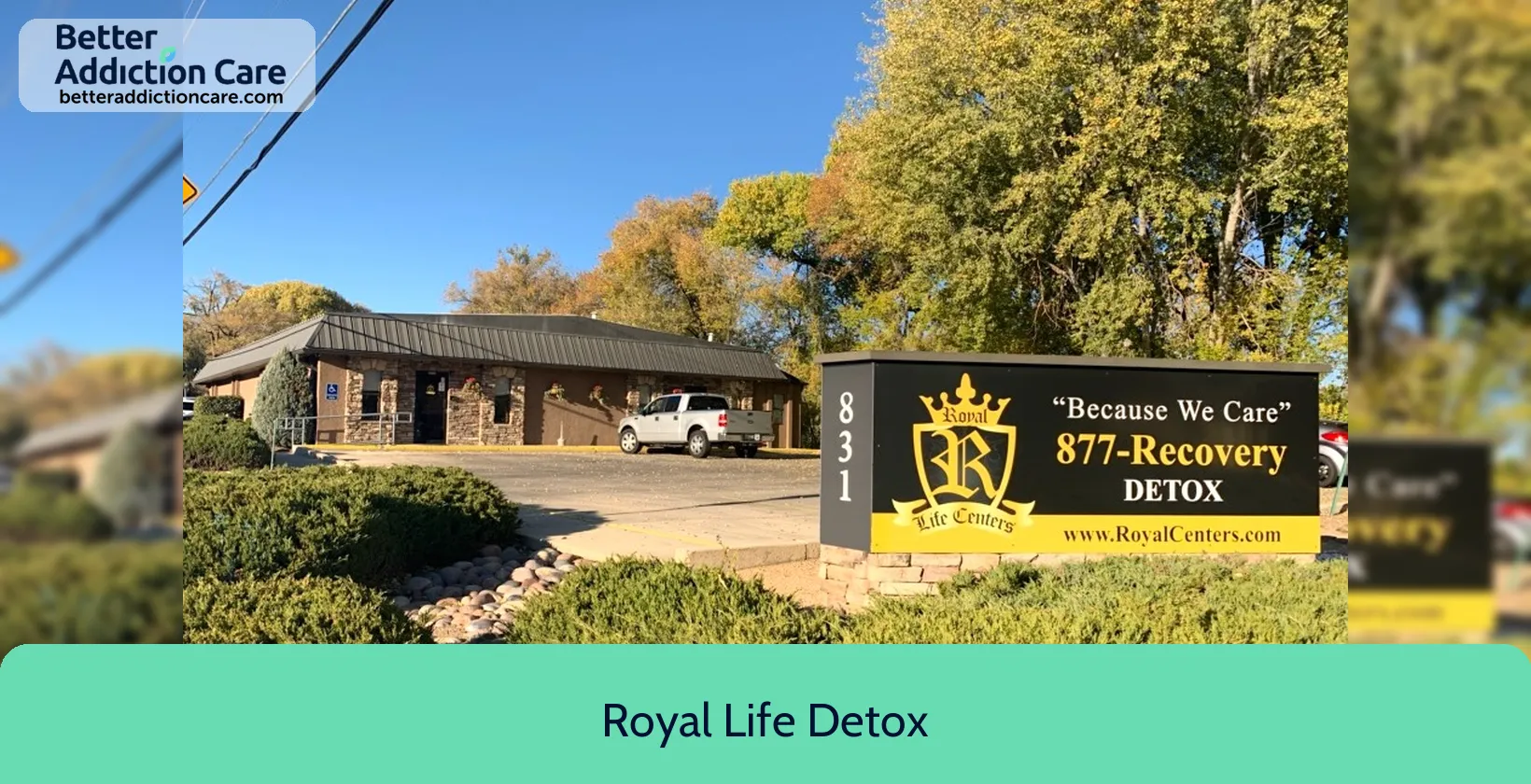
7.31
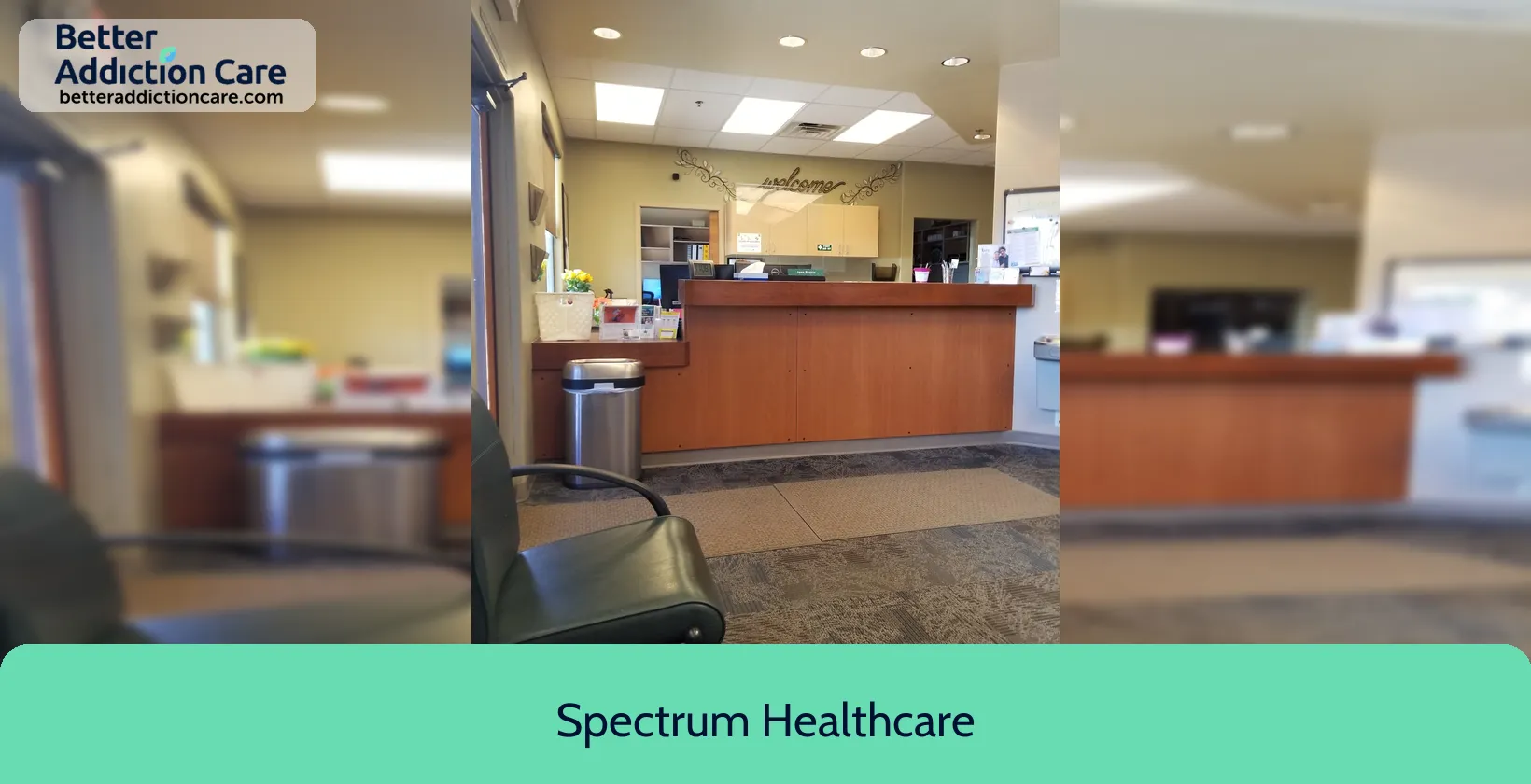
7.17
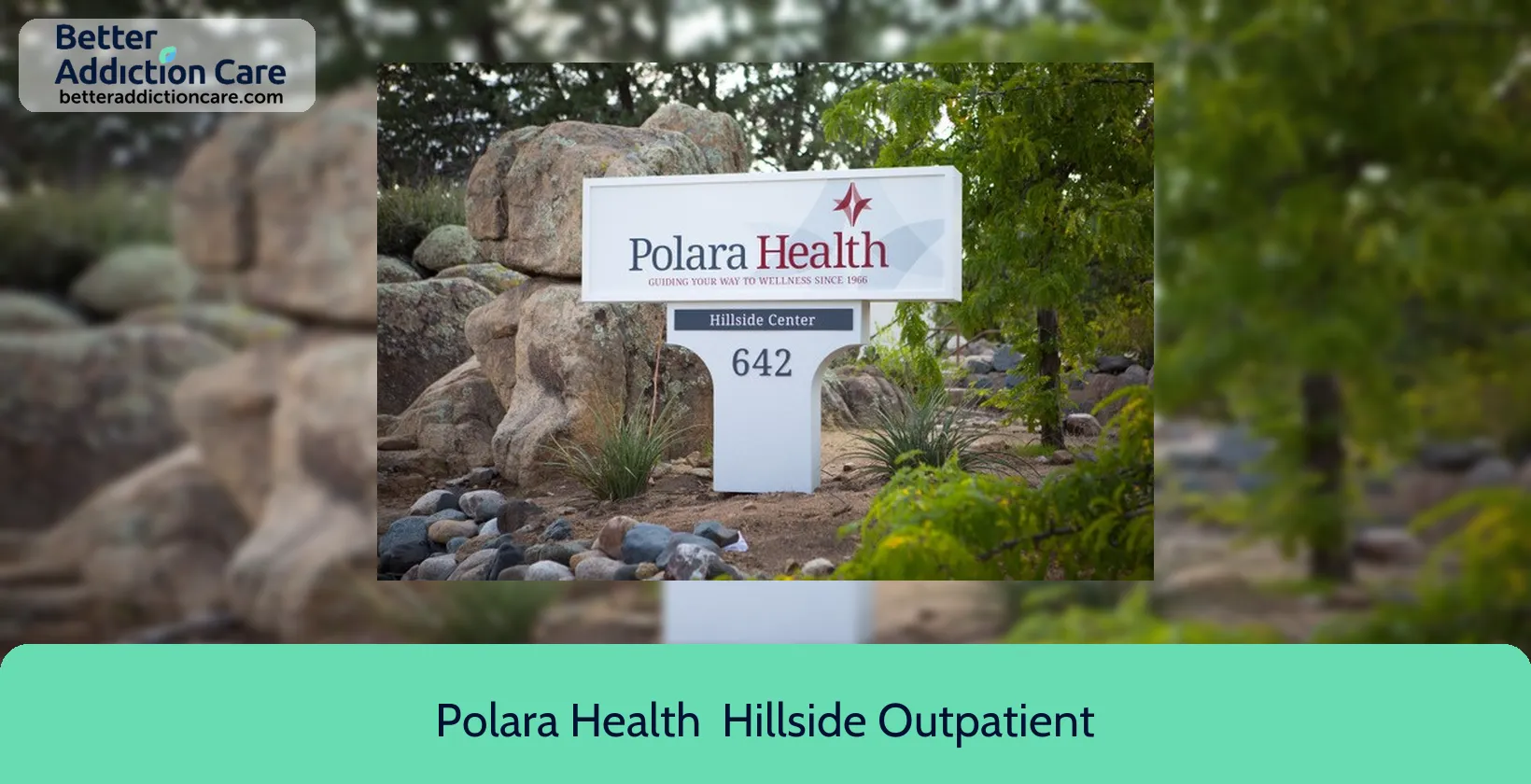
6.71
DISCLAIMER: The facility name, logo and brand are the property and registered trademarks of Polara Health - Hillside Outpatient Services and SUDR Recovery Center, and are being used for identification and informational purposes only. Use of these names, logos and brands shall not imply endorsement. BetterAddictionCare.com is not affiliated with or sponsored by Polara Health - Hillside Outpatient Services and SUDR Recovery Center.
